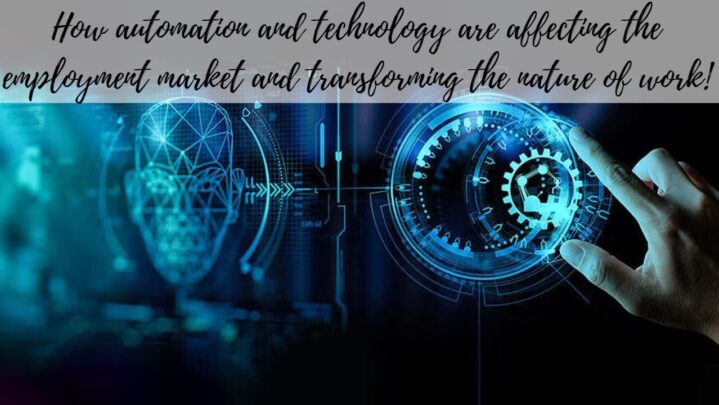Although improvements in automation and artificial intelligence have enhanced productivity and efficiency, they have also eliminated many occupations and changed the skills required for others. Some claim that technology will open up new job opportunities, but others are concerned that the move toward automation would result in severe job losses and economic inequalities.
Automation has one of the biggest effects on the employment sector that technology has had. Today, many jobs that required human labor in the past, such as manufacturing, packaging, and transportation, may be done by robots and other machines. Technology has boosted efficiency and production but has also resulted in employment losses, especially in sectors like manufacturing and retail. More occupations may be mechanized in the upcoming years as this trend is anticipated to continue.
Another technology that is reshaping the labor economy is artificial intelligence (AI). These days, AI systems are capable of handling activities like data processing and decision-making that formerly required human intelligence. New employment prospects in industries like data science and machine learning may result from this. In sectors like finance, healthcare, and law, it could also result in the loss of several jobs.
AI and automation are only two examples of how technology is changing the employment sector. Additionally, remote employment and the gig economy’s growth are technologically enabling. However, they have also sparked worries about job security and economic inequality. Platforms like Uber and Airbnb have created new employment opportunities. Similar to the capacity to work from anywhere, this has allowed many people to pursue new opportunities but has weakened the distinction between work and personal life.
The labor market has been greatly impacted by technology, and this impact will only grow in the future. Though it has enhanced productivity and efficiency, it has also eliminated many occupations and changed the skills required for others. It will be crucial to think about how technology will affect the labor market going forward and to take action to mitigate those effects invest in education and training initiatives to help people get ready for the occupations of the future to lessen its negative consequences.





